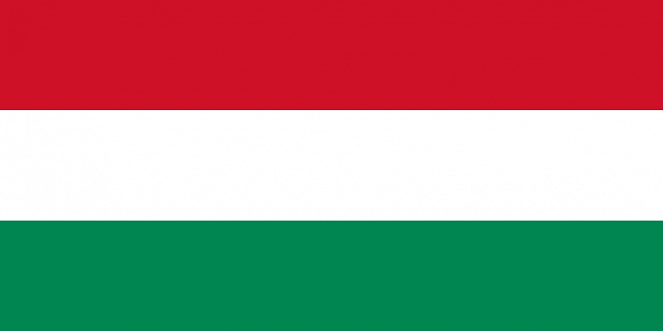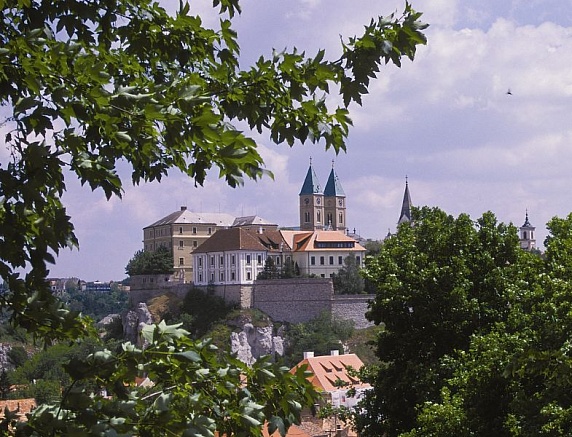 Венгрия
Венгрия
Alexander Yakovenko, the Spokesman of Russia's Ministry of Foreign Affairs, Answers Russian Media Questions Regarding Russian-Hungarian Relations
Unofficial translation from Russian
Question: What have been the dynamics in the evolution of Russian-Hungarian relations in the last few years?
Answer: The recently concluded visit to Moscow of Hungarian Minister of Foreign Affairs Ferenc Somogyi has demonstrated the depth of the positive turn in the approaches of Budapest to Russian-Hungarian relations that has occurred over the last two and a half years - since the coming to power of the social-liberal coalition government. The Hungarian side has repeatedly declared its intention to keep up and consolidate the favorable trend in the evolution of bilateral ties with Russia. In its turn, the Russian side is pleased with the ongoing development of cooperation with Hungary and is disposed to strengthen further our mutual respect and trust and to work on implementing the accords reached.
Question: How is the Moscow-Budapest political dialogue being realized?
Answer: Of special importance is the continuation of a regular political dialogue between Moscow and Budapest. Since May 2002 four meetings at the highest level have taken place, and two visits at the heads of government, and four at the foreign ministers level. Speaker of the National Assembly of the Republic of Hungary Katalin Sili accepted the invitation of Chairman of the Federation Council Sergey Mironov, conveyed during his visit to Budapest in November 2004, to head a Hungarian delegation to the next Petersburg Economic Forum this upcoming June, where the national presentation of Hungary will take place.
Question: What commemorations of the 60th anniversary of the end of World War II are being held in Hungary?
Answer: Although Horti's Hungary during the greater part of World War II participated in it on the side of Hitler Germany, the present leadership of the country is taking steps in order to worthily mark the 60th anniversary of its end. Hungarian President Ferenc Madl confirmed his participation in the ceremonies in Moscow, dedicated to the 60th anniversary of the Victory. With considerable public response, the events were held on January 18 to commemorate the 60th anniversary of the Red Army's liberation of the Budapest ghetto. The anniversary of the liberation of Budapest was also observed on February 13. At the state level, the celebration is also expected in Hungary of the 9th of May - the anniversary of the Victory over fascism.
Question: In what state is the juridical base of bilateral relations?
Answer: Hungary is the only state of Central and Eastern Europe (CEE) which did not take the path of unilaterally denouncing the bilateral treaties and agreements with Russia in the context of its entry into the EU, but has been consistently pursuing a line on their agreed review and replacement with new ones. It is planned to sign intergovernmental agreements, on economic cooperation, with whose entry into force a possibility will appear to resume the activities of the Intergovernmental Commission on Trade-and-Economic Cooperation, and on the regulation of arms production in Hungary under licenses of the former USSR - the first document of this kind between Russia and one of the states of the CEE.
Question: What tasks do Moscow and Budapest set themselves in the trade, economic, financial and investment fields?
Answer: The entry of Hungary into the European Union did not become an obstacle to the development of trade-and-economic ties between our countries. The volume of bilateral trade has been rising for the third consecutive year, at 30% per year on average (on the results of 2004 it hit a record-high level of about 4.3 billion dollars), with the faster growth of Hungarian exports (amounting in the past year to 830 million dollars, an increase of 37 %). The undertakings in order - large investment and cooperation projects: the participation of Russian organizations in the reconstruction and expansion of the Budapest subway, the modernization of the car fleet, the reconstruction and possible expansion of the Paks Nuclear Power Plant, the establishment of the largest transshipment base in CEE at Zahoni, near the Hungarian-Ukrainian border, and of Hungarian organizations in the construction of housing and infrastructure facilities in Russia's regions, the erection of a thermoelectric power station in Astrakhan, the equipment of a hospital in Arkhangelsk, and construction of a large waste processing plant near Moscow. Vnesheconombank is actively cooperating with Hungary's Eximbank and the Export Credit Insurance Agency in questions of the financing of bilateral trade.
Strategic is the interest of Hungary in meeting its requirements in oil and natural gas with supplies from Russia on the basis of long-term contracts and agreements. A five-year contract was signed on January 19, 2005, between a subsidiary of Lukoil and the Hungarian concern MOL for the supply of 5 million tons of oil annually for the oil refineries under its control in Hungary (Szazhalombatta) and Slovakia (Bratislava's Slovnaft).
Question: How are the cooperation plans being implemented in the cultural and humanitarian field?
Answer: Russian-Hungarian cooperation in the cultural and humanitarian sphere has greatly intensified in the last few years. In accordance with the signed bilateral protocol 2005 will pass in our countries under the banner of the Russian and Hungarian Cultural Seasons - by a mutual assessment of the sides, an unprecedented event in ties between them for almost the last 20 years. The Hungarian Season will commence with the opening in the State Historical Museum of an exhibition on the theme "Russian-Hungarian Dynastic Ties in the 19th Century."
An open question in bilateral relations still remains the fate of the collection of ancient books and manuscripts of the Sarospatak Reformation Library that turned out to be in Russia (in Nizhny Novgorod) as a result of the Second World War. The Hungarian side has been pressing for the return of the collection. There is an understanding on the need to find a mutually acceptable solution on the basis of international law, Russian legislation and with due consideration for all the circumstances in which the problem arose (including cultural losses incurred by our country as a result of the actions of the Hungarian occupation forces in a number of Russia's regions - the Voronezh, Kursk and Belgorod).
Question: What could be said about cooperation between the two countries on the international scene?
Answer: Budapest adheres within the EU and NATO to a generally balanced approach to development of partnership and cooperation with Russia, and holds well-considered, pragmatic positions in these and other European cooperation organizations and structures and on the problems of Central and Southeastern Europe. There are between our countries quite a few points of contact in questions of counteraction against international terrorism and the combining of efforts to meet new challenges and global threats. A confirmation of this is the regular character of inter-MFA consultations and the invariable inclusion of urgent international topics in the agenda of the political dialogue between our countries.
February 15, 2005











